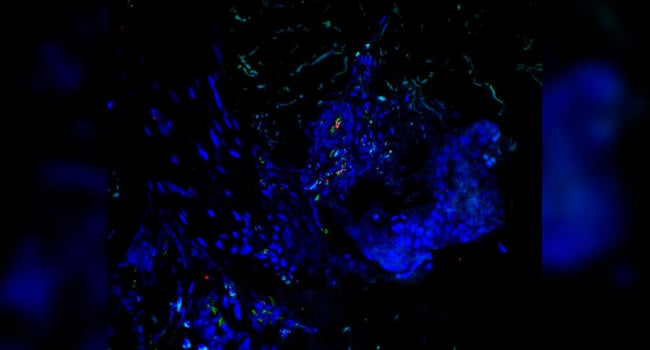Scientists have identified an auto-inflammatory disease caused by mutations in the LYN gene, an important regulator of immune responses in health and disease. Named Lyn kinase-associated vasculopathy and liver fibrosis (LAVLI), the identification sheds light on how genes linked to certain illnesses can potentially be targets for treatment by repurposing existing drugs. The research is published in Nature Communications.
LAVLI was first discovered in a pediatric patient through genetic testing, which detected a mutation in LYN, the gene that encodes the Lyn kinase protein. Two additional, unrelated pediatric patients were later discovered to have two more mutations in the same gene. All three patients developed diseases linked to the LYN genetic mutation shortly after birth. Two patients developed liver fibrosis—excessive amounts of scar tissue caused by inflammation and repeated liver damage—in the first year of life. All three patients had perinatal onset of neutrophilic cutaneous small vessel vasculitis. This is an immune disorder characterized by inflammation from high numbers of neutrophils—white blood cells of the immune system—that can damage small blood vessels.
The study revealed Lyn kinase was always active and unable to shut down in the three patients with the LYN mutation, which increased neutrophil migration, altered inflammatory signals and activated scar and fibrosis-inducing liver cells. The results of this study suggest that Lyn kinase may be a potential therapeutic target for drugs that treat forms of non-syndromic small vessel vasculitis and other types of inflammation-induced liver fibrosis.


